Accelerate the Recovery Process of your Autistic Kid with a Multi-Disciplinary Approach by availing Best Treatment of Autism in India
As a parent of an autistic child, you may fear that your child may be bullied or treated differently in society. You may also fear that autism may prevent your child from living a complete and independent life. These fears are obvious.
But what if we tell you that you can shrug all your fear off and give your child a new lease of life?
With the advancement in medical science and by combining conventional treatment modalities with multidisciplinary approaches across different streams of medical science, it has become possible for children with autism to live a complete and independent life. India is leading the world in these advancements. The country has seen many success stories in recent years.
To get to the bottom of it, let’s check how autism treatment in India is helping thousands of children and learn all the details necessary for a successful treatment.
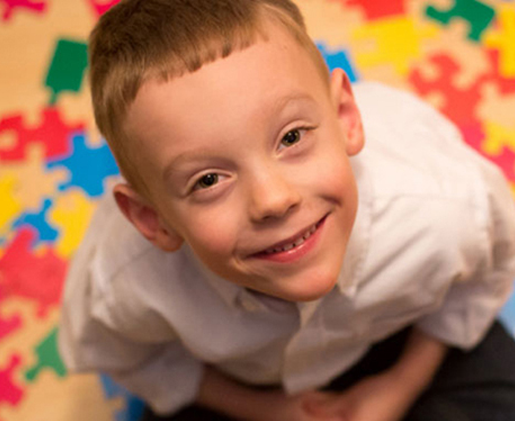
What are the different treatment approaches for autism spectrum disorder?
When it comes to treating autism, there’s a whole range of options out there, from your standard treatments to procedures like stem cell therapy. Let’s take a closer look at the types of autism treatment and see what evidence shows about how well they work in helping manage autism.
1. Standard Treatment for Autism
The conventional methods of treating Autism revolve around analyzing the development growth challenges and training the children to cover the gaps with different kinds of therapies such as behavioural therapy, speech therapy, occupational therapy, or physiotherapies.
Along with these therapies, the doctor may also prescribe some medications for suppressing very aggressive symptoms or gut issues.
The details of these therapies are as follows:
Behavioural Therapy for Autism
So, let’s talk about Applied Behavior Analysis (ABA) therapy, which is pretty common for treating autism. Precisely, it breaks skills down into small steps and uses rewards to teach and reinforce good behaviours.
ABA therapy can be intense, with sessions going on for 25 to 40 hours a week for a few years. But the good news is, this therapy helps with areas like thinking skills, language, everyday stuff, and social skills.
More information on the benefits of Cognitive behavioural therapy for Autistic children can be found on the United States official website of the National Institute of Child Health and Human Development

Speech Therapy for Autism
Speech therapy for autism aims to improve communication abilities, including language development, and social interaction. It can help children with autism grasp abstract concepts, develop conversational skills, and understand social cues.
Speech therapy is typically provided by speech-language pathologists (SLPs) who are trained to work with individuals with communication disorders.
More information on speech therapy for Autism can be found on the United States official website of the National Institute of Child Health and Human Development.

Occupational Therapy for Autism
Occupational therapy for autism helps with different areas like how you process sensations, your ability to use your hands for small movements, taking care of yourself, getting along with others, and learning how to do things on your own.
Visit to read research on the role of occupational therapy.
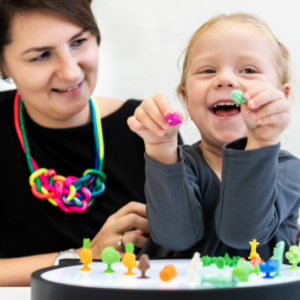
Physiotherapy for Autism
Physiotherapy for autism can make you stronger and better at moving your body. It helps with things like running, jumping, and staying balanced. It also makes it easier to do everyday activities and feel more confident around others.
For more information read Physical Therapy for Autism.
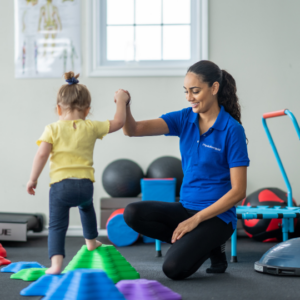
Medicines for Autism
The healthcare provider may refer medications for an autistic person. These are mostly anti-anxiety and anticonvulsant medications.
Anti-anxiety medications can calm down feelings of worry and fear that are common with autism. Anticonvulsant medications can help control seizures, which happen to some people with autism.
More information on medicines for Autism can be found on the United States official website of the National Institute of Child Health and Human Development.

Diet for Autism
The Gluten-Free, Casein-Free (GFCF) diet is a popular diet for autism. It means avoiding foods with gluten (like wheat, barley, and rye) and casein (like milk and dairy products). Some parents and caregivers say they notice better behavior, social skills, and learning when their child follows this diet.
Visit to read research on the Effects of Diet in Children With Autism.

Pros and Cons of Conventional Treatments
PROS
The Major benefit of this approach is that it’s very well-established and widely practiced by neurologists. This is the approach that is also taught in Medical colleges. Most of the government bodies also recognize these approaches.
There is a very high probability that if you are getting your kid treated by any of the neurologists, you might be undergoing a few or all of the above-mentioned therapies.
CONS
The major con of this approach is that nobody can predict how much time these therapies will take to bring your kid to the stage where he/she can do his/her daily activities on his/her own.
It may take years to decades to show visible results.
Moreover, if a doctor needs to give anti-anxiety drugs for extreme hyperactivity, that can also have its own short-term and long-term side effects. The doctors, typically explain the side effects and also the risk-benefit ratio to patients when they prescribe it.
So the question is how we can expedite the recovery process of the children.
If you are also looking for the answer to this question, then you need to read it further.
2. Stem Cell Therapy for Autism
There is a new advancement in allopathy treatment which is focussed around using the regenerative capabilities of stem cells to treat Autism disorder.
Stem cell therapy for autism helps by using special cells to improve brain function in children with autism. These cells help repair damaged areas of the brain, leading to better communication and behaviour.
But what’s the basic science behind stem cell treatment?
In this treatment method, doctors use the regenerative power of the stem cells. Stem cells are the basic building blocks of our body and they can take the form of any kind of specialized cell and do their function.
Their basic biological task is repairing and regenerating the damaged cells and the power of this amazing cell is used to treat autism symptoms.
Apart from that, stem cells have two major functions paracrine and immunomodulatory. Paracrine and immunomodulatory functions of these cells help in growth factors like learning, communication, behavioral patterns, and immunity.
Doctors are using these powers of stem cells to regenerate and repair the damaged tissues in the brain of an autistic child and adapt their immunity to help them function independently.
There is a high probability that the damaged neurons of an autistic child’s brain can be regenerated with stem cell therapy.
Visit for more information on Stem Cell Therapy in Children with Autism Spectrum Disorders.
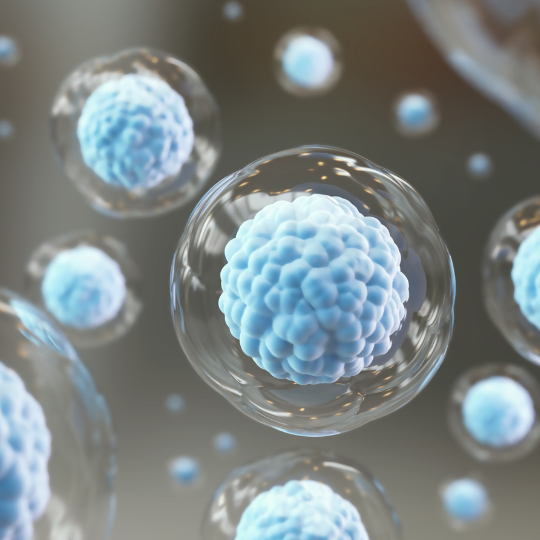
Pros and Cons of Stem Cell Therapy for Autism
PROS
By the basic science of stem cells, this approach attempts to bridge the limitations of conventional approaches and can expedite the recovery process of Autistic children significantly. Training-based therapies such as behavioural, speech therapy, etc will still be required to train the repaired ( or in some cases newly generated) neurons.
Many parents have seen positive changes in their children’s social skills and language abilities after undergoing stem cell therapy.
When the stem cell therapy gives results, they are visible in 2-4 weeks and significant recovery happens in four to six months.
CONS
Since this regenerative science is in the research stage, there is no existence of a standard protocol yet. The protocols are driven by the researchers and practitioners.
Moreover, the results also vary from patient to patient. There is even a possibility that you may not find any improvement or temporary improvement in the kid.
So the very crucial factor is doctor selection. You should choose a doctor who has successfully treated Autistic children with a consistent success rate and also a large number of patients. This is really difficult but with the organizations like MedicoExperts which is working with many doctors and hospitals, this problem can be fairly addressed.
Furthermore, again since these therapies are in research mode, there are no formal approvals from government organisations and insurance companies. Even if you are insured, you need to plan the expenses from your pocket.
For more details on stem cell treatment for autism please click the button below.
3. Autism Treatment in Homeopathy
Homeopathy is another stream of medical sciences (Like allopathy) which can be considered as a treatment of autism in India and is a strong pillar in the Alternative medicines category.
Homeopathy is originated in Germany and practiced in many countries today.
You can find more information on the history of Homeopathy
To understand its science, you need to understand its principles. Homeopathy is based on “similia similibus curentur”, which means light can cure light or “all diseases should be treated by similar drug diseases“.
When we talk about homeopathy, it has two balancing factors – your body and your mind. When these two factors are in harmony with each other, your body remains healthy and you do not get ill. But when the stability of your mind and body gets hampered, you are attacked by diseases.
In that case, you need medicine. In short, the core science of homeopathy works by balancing and stabilizing your mind and body.
Homeopathic treatment concentrates on the causes of autism, and after observing the child’s symptoms, the practitioners give them the medication. Unlike stem cell therapy, homeopathy focuses on training the already existing cells and maximizing their function.
Homeopathy offers a promising treatment for Autism Spectrum Disorder (ASD). Since each child with ASD is unique, treatment needs to be tailored to the specific needs of the kid. The doctors may use different homeopathic medicines may be used at various stages of the condition. The duration of treatment depends on the severity of the condition and the child’s age.

Pros and Cons of Homeopathy Treatment for Autism
PROS
The treatment often shows positive results, with many children experiencing improvement. The results generated by the Homeopathy are sustained results and the possibility of reversal of achieved results is very rare.
A few of the shortcomings of Stem cell therapy can also be addressed in Homeopathy.
Moreover, Homeopathic remedies are safe for all ages and have no known side effects. They can be taken for extended periods without worry.
CONS
Homeopathy works slowly and steadily and there might be changes in the medication and doses during treatment. You should be prepared for a minimum of 6 months to 2 years of treatment.
There are no standard protocols and the medication is customized for each patient. The search and availability of good practitioners of Homeopathy is also a challenging task.
Hence, the very crucial factor is doctor selection in homeopathy. You should choose a doctor who has successfully treated Autistic children with a consistent success rate and also a large number of patients. This is difficult but with the organizations like MedicoExperts which is working with many doctors and hospitals, this problem can be fairly addressed.
For more details on autism treatment in Homeopathy please click the button below.
4. Autism Treatment in Ayurveda
Ayurveda is yet another stream of medical sciences (Like allopathy and homeopathy), originated thousands of years ago in India and is a very popular option for the treatment of autism in India for its root cause-solving approach and hence a very strong pillar in Alternative Medicines.
You can find more information on Ayurveda including its history here History of Ayurveda.
In Ayurveda, Indian medicinal herbs and plants are used to treat any disease. An Ayurvedic practitioner diagnoses a disease or an ailment based on three different elements or energies.
Based on these three elements or energies, there are three doshas-
- Vata dosha (air and space energy is more active). Vaat dosha governs the moment part of your body.
- Next is pitta dosha (where fire energy is more active). Pitta dosha governs the metabolism of your body.
- The last one is cough dosha (where water energy is more active). This dosha governs the emotional and mental health part of your body.
An imbalance of these three doshas indicates that your body has some ailment or disease.
In Ayurveda, the treatment modalities are herbal medications and Panchkarma which are different external therapies with medicated oils.
In the research about using Ayurveda for treating autism, various studies were examined. Some studies have shown the effectiveness of Ayurveda in treating autism.

Pros and Cons of Ayurveda Treatment for Autism
PROS
Ayurveda medications and therapies are natural therapies and are widely known for having no side effects. These medications and therapies even have references in sculptures as old as the BC era and have been practiced since then.
Many autistic patients are benefitted from Ayurveda. In all cases, the results are sustained results.
Ayurveda is a recognized medical science by the Indian government and many of its herbs are widely used even by allopathy medicines. Many researchers have worked on these herbs and generated scientific evidence on their properties.
Ayurveda medications and treatments can be very clubbed with conventional methods and stem cell therapy.
CONS
Ayurveda also works slowly but steadily. So you should be prepared for slow but sustained results.
For PanchKarma therapies, international patients may need to travel to India as these therapies may not be available in your country. However, in developed countries, you can easily find Ayurvedic centers.
The treatment protocols are customized for every patient and hence the skills of doctors play a very important role in the results. So, finding a good doctor who has consistently given results is a difficult task but with organizations like MedicoExperts that work with many doctors and hospitals, it can be very well addressed.
For more details on Ayurvedic treatment for autism please click the button below.
How do you decide which treatment is best?
99% of the patients start with Allopathy approach the neurologist and start the journey with ABA therapies. Few can get the results but most need to wait indefinitely.
There is nothing wrong with this approach, but if you are looking to expedite the recovery of your kid, you need to go out and explore other sciences.
However, one point you should note is that all the streams of medical sciences are designed to focus up to the point where the kid can do their daily activities on their own. So there is nothing that exists as 100 percent results.
There are many possibilities such as stem cell therapy, Homeopathy, and Ayurvedic treatment which can accelerate the recovery process. Rather, the combination of these approaches can also further expedite the recovery process.
The right combination or addition varies from patient to patient based on the symptoms, degree of symptoms, and type of Autism. For example, in a moderate case of Kanner’s Syndrome having a cause “trauma during pregnancy” stem cell therapy is a good option. To accelerate, the recovery further, Homeopathy medications can be started after Stem cells. This can help one, to derisk the sustenance of results and second, slowly improve the results that stem cells have generated. For further acceleration, Ayurvedic Panc Karma therapy can also be added.

Please consider the above as an example rather than a definitive prescription. A thorough study of your case by a team of doctors can better guide what’s best for you.
The biggest roadblock in such combination therapies is to find a set of doctors who are willing to cooperate with the doctors of other streams for accelerated recovery. The reason is, that every doctor has education and training in his stream and is busy day and night treating the patients accordingly. Moreover, in the absence of formal education and training, it is difficult for a doctor to trust or comment on other streams of science.
With the blessings of parents of many Autistic kids and the Almighty, MedicoExperts has such a panel of doctors from different streams, who have generated confidence in other sciences and work together to generate the fastest possible recovery for diseases that don’t have predictable solutions in conventional methods.
What is the Cost of Autism Treatment in India?
The stem cell therapy for autism cost in India starts from 6,00,000 INR to 8,00,000 INR per cycle (USD 7200 – USD 9600 per cycle), depending on the patient’s current condition, treating doctor, and suggested protocol.
In the case of Homeopathy and Ayurveda, the cost is around 10,000 INR to 50,000 INR (USD 120 – USD 600) and 60,000 INR per cycle (USD 720) respectively.
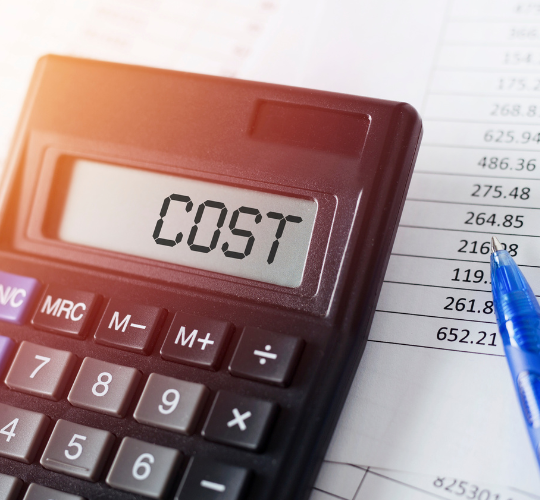
What is the Success Rate of Autism Treatment in India?
On average, Stem cell therapy gives you results in parts. In the initial 15 days, you will see some improvements in your child, such as a decrease in hyperactivity and you will see major improvements within the 6 months of stem cell therapy, which includes, improved eye contact, improved understanding of the surrounding and in some cases non-verbal children have shown significant improvement in their speech.
Depending on the individual case, a lot of customization happens in terms of stem cell injections, the number of cells required, and the number and type of therapies needed.
The therapy showed promising results in mild and moderate cases. Approximately, 50-60 percent improvement can be achieved. In the case of severe autism, the improvement achieved with stem cell therapy is around 30 percent.
Depending on the condition of a child homeopathy tries to treat the reactivity in them. In homeopathy, autism is classified depending on the severity. So it is most effective where the reactivity of the child is higher. This means, it can treat moderate to severe cases of autism more effectively than the mild ones.
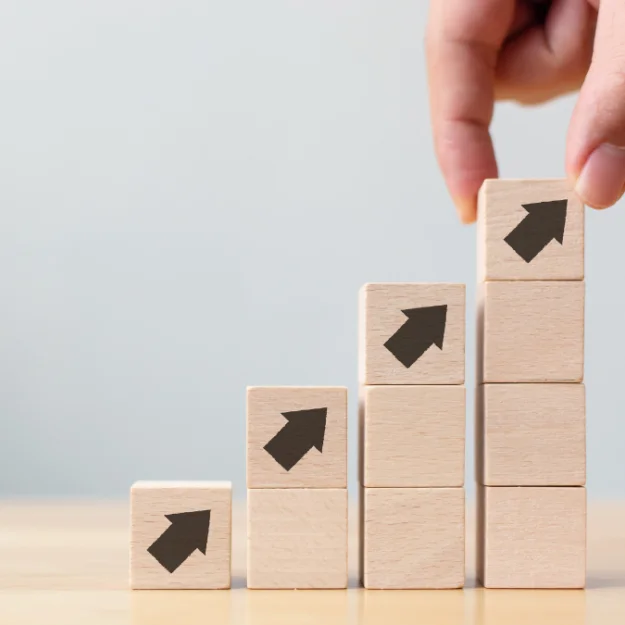
The results also depend on the doctor you are opting for. You can expect a 20-40 percent improvement, which happens gradually. If the patient consistently takes the medication, 2 weeks to 3 months, and in some cases, it takes around 1 year.
If the reactivity is high, mild cases can also have a 20-40 percent improvement.
If you are opting for Ayurvedic treatment, you must know that mild cases have a 50 to 60 percent improvement while in the case of moderate autism, the percentage is 30 to 40 percent. The result may vary depending on the condition of the patient.
MedicoExperts’ patients have exhibited notable improvements in multiple ways that demonstrate the advantages of cell therapy in India for autism.
The patterns of behaviour found in kids with autism, such as hyperactivity, and participating in stereotypical and repetitive engine mannerisms, have considerably reduced.
Our team of Doctors (Ayurvedic, homeopathic, and stem cell experts) will hand-hold you and walk you through the entire procedure. They will answer all your queries and help you make an informed decision. To get an understanding, of what your way forward should be, check our webinar, where our team of experts has talked at length about the treatment of autism.
How To Achieve Faster Recovery For Your Child From Autism
You can go through a recording of a webinar conducted with global audiences where we discussed the comparative strengths of each of the medical streams ( Standard treatment, Stem cell therapy, Homeopathy, and Ayurveda).
Moreover, In the same video, you can also find how combining the strengths of different streams, you can accelerate the recovery process of your autistic kids multiplefold.
Takeaway
There is no standard treatment protocol to give predictable results. Conventional ABA therapies such as behaviour, speech-language, play-based, physical, occupational, etc. play a very important role in recovery but these therapies can take years to decades for visible results.
The solution lies in complementing the limitations of one science with other streams of medical sciences. These sciences can be regenerative science such as stem cell therapy, or Homeopathy, or Ayurveda.
With a good panel of doctors across the streams of medical sciences, the recovery rate can very well be accelerated by multiple folds.
Last but not least, Early intervention is equally very important. So start early and reap the best benefits.
If you feel, don’t be shy to contact MedicoExperts for multidisciplinary across different streams of medical sciences to accelerate the recovery of your kid.
Frequently Asked Questions (FAQs):
Q1. What is Asperger’s syndrome? And is it an umbrella under autism spectrum disorder?
A. Children with Asperger’s may not initiate or engage in a discussion and do not compensate for their language by using nonverbal means of communication, thereby restricting their peer interactions. Like autism, Asperger’s kids do not share with others pleasure or concerns.
Q2. How is ASD diagnosed?
A. Formal diagnosis includes parental input and structured screening tools that help with the initial diagnoses. These instruments evaluate symptom incidence. Symptoms may happen at birth or after months of ordinary growth. Children as young as 18 months may be diagnosed, but they have distinct clinical characteristics from an autistic elderly kid.
Q3. Will my 7-year-old autistic child ever talk?
A. The ability of your 7-year-old autistic child to talk depends on their individual development and circumstances. While some autistic children may develop speech skills over time with appropriate support and intervention, others may communicate using alternative methods such as sign language or assistive communication devices.
Q4. What are the additional therapies that one can do along with stem cell therapy for treating ASD?
A. There is no single treatment for ASDs; however, it is commonly recognized that the highest results are achieved through the earliest treatments. An advisable and effective treatment is Stem cell therapy which is accompanied by various other advanced and latest therapies which help the cells to grow in the required targeted areas of the brain.
Q5. How prevalent are autism spectrum disorders?
A. Reviews estimate that an autism spectrum disorder occurs in 1 kid in 160. This estimate reflects an average figure, and the incidence reported varies significantly across research. However, some latest studies have revealed significantly greater rates.
Q6. What can parents do to assist their child who is suffering from autism spectrum disorder?
A. What parents can do, is vital to help a kid with an autism spectrum disorder. They can help to ensure access to health facilities and education and provide stimulating and nurturing environments as their children grow up. It has been shown recently that parents can also help provide their kids with psychosocial and behavioural medicines.
Q7. Are autism spectrum disorders caused by childhood vaccines?
A. There is no proof of a connection between the measles-mumps-rubella (MMR) vaccine and autism spectrum illnesses available in epidemiological data. Previous studies have been discovered to be severely faulty, indicating a causal link. Nor is there any proof that any other childhood vaccine may increase the danger of autism spectrum disorders.
Q8. What is the current status of stem cell therapy from the regulatory framework?
A. The stem cell-based therapy for autism is in the research phase and not yet formally approved by ICMR. However, the application of stem cells, popularly known as bone marrow transplants, in blood-related disorders is approved by ICMR.
Q9. What are the foods that a person needs to avoid when undergoing stem cell treatment for autism?
A. While undergoing stem cell therapy for autism, a child should avoid food that has gluten and also dairy products.
Q10. What are the foods that a person needs to avoid when undergoing homeopathic treatment for autism?
A. Along with a gluten-free and dairy-free diet, the child should avoid raw onion garlic, and camphor.
Q11. What are the foods that a person needs to avoid when undergoing Ayurvedic treatment for autism?
A. When a child is undergoing Ayurvedic treatment for autism, they should avoid food that has gluten and dairy.
Q12. Can my autistic child live a normal life?
A. With the development of medical science, autistic children can live normal lives today. Timely intervention and cutting-edge technologies like stem cell therapy have made it possible.
- https://www.nichd.nih.gov/health/topics/autism/conditioninfo/treatments/cognitive-behavior#:~:text=Research%20shows%20that%20this%20therapy,situations%20and%20better%20recognize%20emotions.
- https://www.nichd.nih.gov/health/topics/autism/conditioninfo/treatments/speech-language
- https://www.ncbi.nlm.nih.gov/pmc/articles/PMC10162488/
- https://www.nichd.nih.gov/health/topics/autism/conditioninfo/treatments/physical-therapy
- https://www.nichd.nih.gov/health/topics/autism/conditioninfo/treatments/medication-treatment
- https://www.webmd.com/brain/autism/gluten-free-casein-free-diets-for-autism
- https://www.ncbi.nlm.nih.gov/pmc/articles/PMC7815266/
- https://www.ncbi.nlm.nih.gov/pmc/articles/PMC9114801/
- https://www.ncbi.nlm.nih.gov/pmc/articles/PMC1676328/#:~:text=While%20it%20can%20scarcely%20compare,to%20have%20arisen%20in%20Europe.&text=It%20was%20founded%20by%20Samuel,millionaire%20in%20Paris%20in%201843.
- https://pubmed.ncbi.nlm.nih.gov/21796902/#:~:text=Contrary%20to%20its%20literal%20meaning,its%20original%20field%20of%20indication.
- https://www.e-cacd.org/journal/view.php?number=112
- https://www.ncbi.nlm.nih.gov/pmc/articles/PMC5198827/#:~:text=Ayurveda%20has%20its%20foundations%20laid,of%20Nyaya%20and%20Vaisheshika%20flourished.
- https://www.researchgate.net/publication/376835340_Ayurvedic_therapy_in_management_of_autism_spectrum_disorder
- https://core.ac.uk/reader/266975480
Next in Autism
Author’s Bio:

Dr. Khushbu Jain is a dedicated professional with a passion for advancing healthcare through cutting-edge treatments. She has a special interest in researching regenerative medicine and advanced treatment for diseases that are difficult to treat with conventional treatment options. Her deep understanding of these progressive treatments allows her to offer patients personalized and effective solutions for a variety of health concerns.



